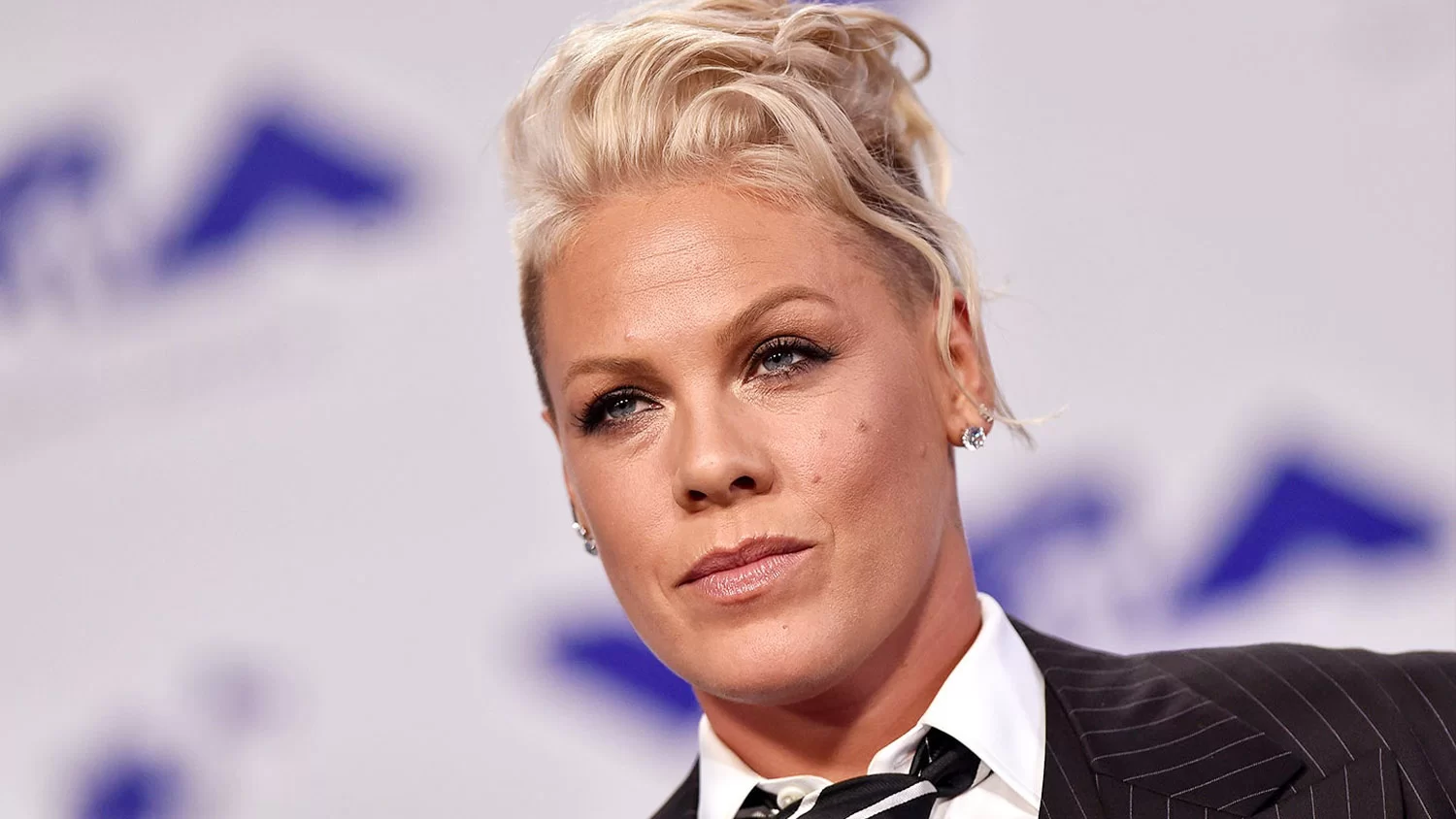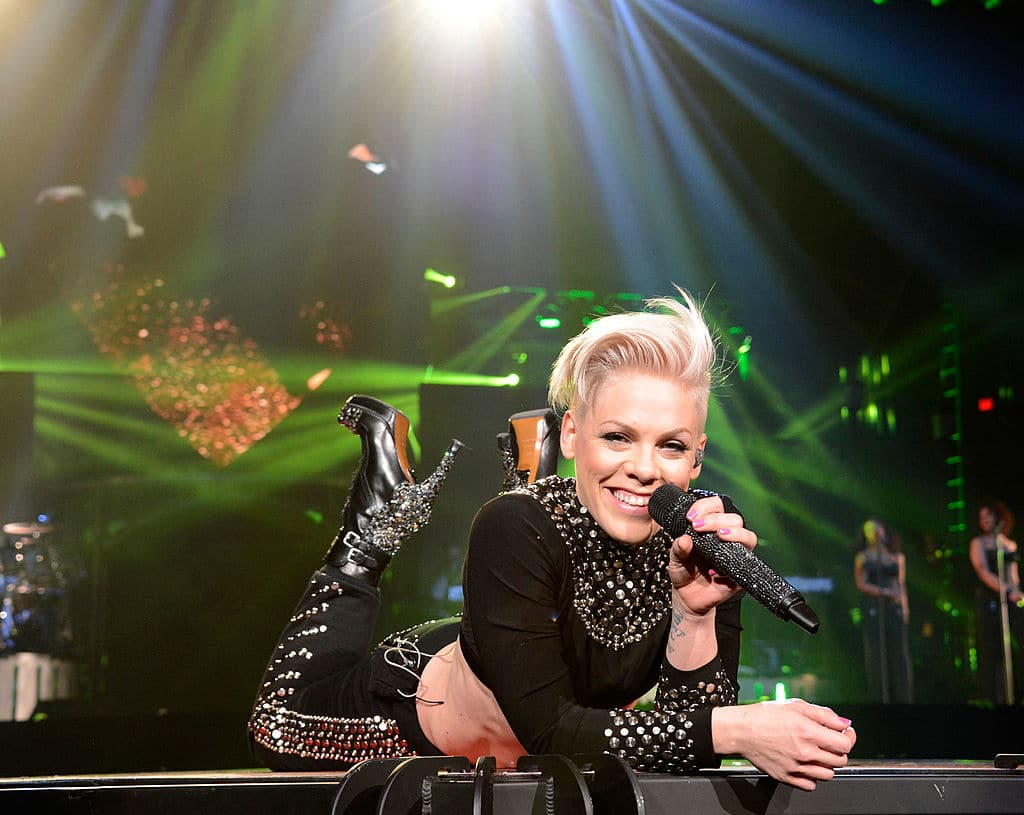Entertainment
Is Pink A Lesbian Celebrity?

For over two decades, Pink has been one of the most popular and influential musicians in the pop-rock world. With her powerhouse vocals, edgy style, and unapologetic attitude, she has amassed a massive fan base and earned respect as an LGBTQ+ ally and advocate. However, there has been ongoing speculation and curiosity about Pink’s own sexuality, specifically whether or not she identifies as a lesbian. In this article, we’ll explore the facts, rumors, and Pink’s own statements regarding her sexual orientation.
Early Life and Career
Born Alecia Beth Moore in 1979 in Doylestown, Pennsylvania, Pink developed an interest in music from a young age. She initially gained recognition as a member of the R&B girl group Basic Instinct before embarking on her highly successful solo career. Her debut album, “Can’t Take Me Home,” was released in 2000 and showcased her unique blend of pop, rock, and hip-hop influences.
Pink’s Relationships and Personal Life
Throughout her career, Pink has been in several high-profile relationships, primarily with men. From 1994 to 1998, she was involved with childhood friend and fellow performer Quintine Arrington. In 2001, she began a relationship with motocross racer Carey Hart, and the two married in 2006. Though they briefly separated in 2008, they reconciled and have since welcomed two children together, daughter Willow Sage in 2011 and son Jameson Moon in 2016.
Despite these heterosexual relationships, Pink has been open about her attraction to women and her fluid approach to sexuality. In an interview with The Advocate in 2012, she stated, “I’m not lesbian, but I’ve been with girls.”
Pink’s LGBTQ+ Advocacy and Allyship
Regardless of her personal sexual orientation, Pink has consistently been an outspoken ally and advocate for the LGBTQ+ community. She has been a vocal supporter of same-sex marriage and has spoken out against discrimination and prejudice faced by the LGBTQ+ community.
In 2013, Pink was honored with the Ally for Equality Award by the Human Rights Campaign (HRC), one of the largest LGBTQ+ advocacy organizations in the United States. During her acceptance speech, she emphasized the importance of acceptance and inclusivity, stating, “It’s an honor to be recognized for something I feel so strongly about, and if this communication can help spread the word that we’re all equal, then I’m proud.”
Pink has also used her music and performances as a platform to celebrate and support the LGBTQ+ community. Her 2017 music video for the song “What About Us” featured a same-sex couple and a transgender actress, while her 2019 music video for “Walk Me Home” highlighted the struggles faced by LGBTQ+ youth and the importance of acceptance and support.
Addressing Lesbian Rumors and Speculation
Despite her support for the LGBTQ+ community, Pink has consistently rejected the notion that she is a lesbian herself. In an interview with The Times in 2019, she addressed the persistent rumors about her sexuality, stating, “I’m not lesbian, but I wish I was – I’d be the first one out if I were.”
However, Pink has also acknowledged the fluidity of her sexuality and has expressed attraction to women. In an interview with Glamour in 2012, she said, “I’m not a lesbian, but I can easily fall in love with a woman.”
This openness to same-sex attraction, combined with her androgynous style and edgy persona, has contributed to the ongoing speculation about Pink’s sexual orientation. However, it’s important to respect her self-identification and not impose labels or assumptions without her explicit consent.

Embracing Fluidity and Defying Labels
Throughout her career, Pink has consistently defied societal norms and expectations, both in her music and her personal life. Her willingness to embrace fluidity and resist rigid labels when it comes to her sexuality is in line with her overall philosophy of authenticity and self-expression.
In an interview with The Advocate in 2018, Pink addressed the complexities of sexuality and the limitations of labels, stating, “We’re all human and we’re all beautiful and we all want the same things – to be loved, to be heard, to be respected, to have nice children, to have amazing partners. And I don’t understand why we’re constantly separating ourselves from one another.”
By rejecting the need to define her sexuality in binary terms, Pink has positioned herself as an ally and advocate for the LGBTQ+ community while also celebrating the diversity of human experience and the right to self-determination.
Conclusion
While Pink has consistently stated that she does not identify as a lesbian, her open-mindedness about same-sex attraction and her unwavering support for the LGBTQ+ community has made her a beloved figure among LGBTQ+ fans and allies alike. Her commitment to authenticity, self-expression, and defying societal norms has inspired countless individuals to embrace their own identities and celebrate their uniqueness.
Whether Pink identifies as straight, bisexual, or something else entirely, her impact as an ally and advocate for LGBTQ+ rights and visibility cannot be overstated. By using her platform to promote acceptance, inclusivity, and respect for all individuals, she has become a powerful voice for change and a source of inspiration for those who feel marginalized or misunderstood.
Ultimately, Pink’s journey is a reminder that sexuality is a complex and personal aspect of identity and that individuals should be free to explore, express, and define themselves without judgment or constraint. While her music and personal life may continue to be the subject of speculation and curiosity, the true essence of Pink’s legacy lies in her unwavering commitment to empowerment, authenticity, and love for all.
